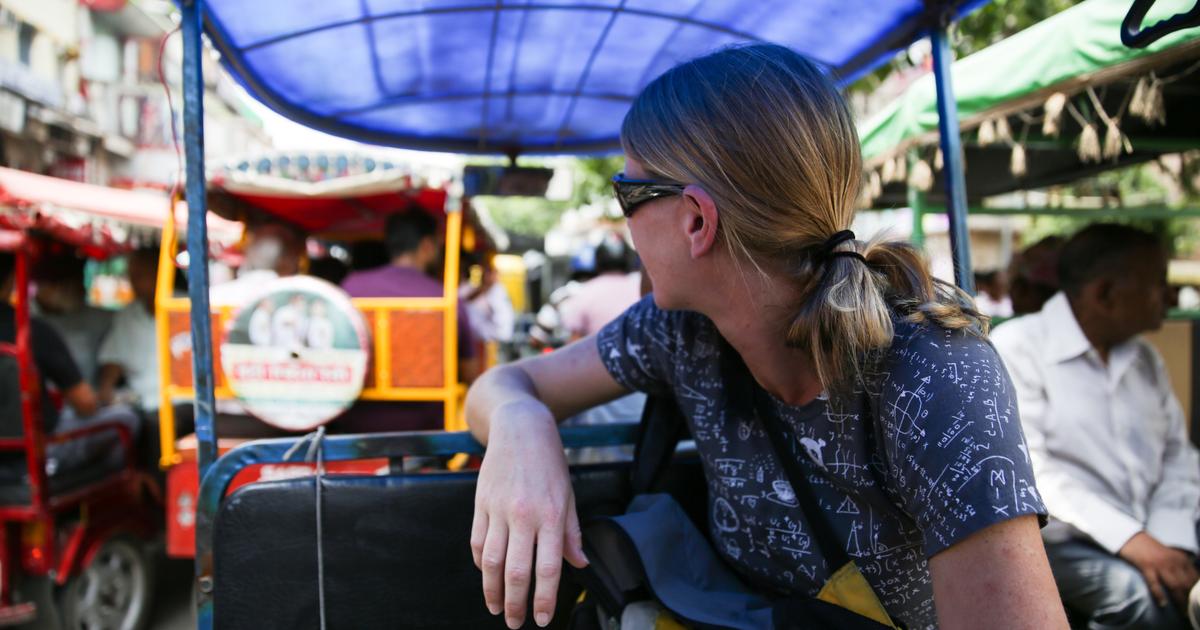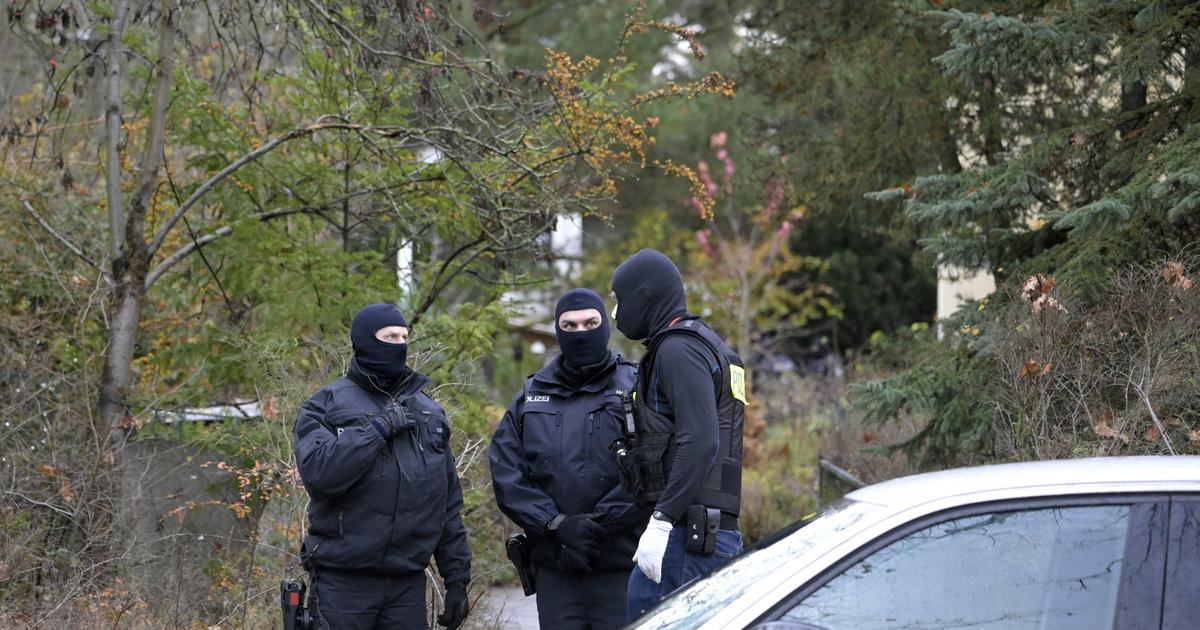The Hamburg boy joined the boxing club Heros shortly after the war. Only his darker skin distinguished him from his clubmates. Also Ulfo Peters, born in 1934, spoke Hamburger Platt; after elementary school he had found an apprenticeship as a baker and pastry chef. Of work and training, he often recovered in the pub Bärenschenke in Telemannstraße. And like most of them, Ulfo lived alone with his mother - the fathers were killed, missing or in prisoner of war.
Ulfo's father, it was said at that time, was probably an African from one of the "Völkerschauen", when people from exotic countries such as cattle were exhibited in the Hagenbeck Zoo. The story stayed in the fifties; Boxing was now a mass sport and Peters city known. 5000 people came when the amateurs ascertained their best or climbed into the ring for city battles.
Ulfo Peters competed in feather, later in light welterweight. He was repeatedly Hamburger champion, boxed at German championships and international comparison fights - an excellent technician with solid clout. Form fluctuations explained fans with his job: "He has to get out every morning at four o'clock."
photo gallery
21 pictures
Surviving in racial delusion: Black Germans in the Nazi dictatorshipWhen Peters ended his career in the late fifties and left Hamburg, over 100 fights were in his fight pass. The press had talked about his sporting success, not about his life. At that time nobody asked for the experience of an Afro-German under the swastika.
Today even the foreign countries are interested in "Being black in Nazi Germany", so the title of a documentary for the BBC. The Afro-British author Amma Asante can use for her work what German historians have found out about the Nazi race policy against colored people. Because in the last decades much has been made up, there are impressive representations of eyewitnesses.
They just wanted to be Germans
Thus, the Hamburg Hans Jürgen Massaquoi (1926-2013) was the grandson of the Liberian Consul General and son of a German nurse. In his filmed biography "Negro, Negro, chimney sweep" of 1999, Massaquoi described how he survived the Hitler regime and the firestorm in the bombing of Hamburg. He was helped by neighbors, including a Nazi official.
Price query time:
06.06.2019, 13:32 clock
No guarantee
DISPLAY
Hans Jürgen Massaquoi
Negro, Negro, Chimney Sweep: My childhood in Germany
Publishing company:
Droemer Knaur
Pages:
512
To the Amazon offer
Product information is purely editorial and independent. The so-called affiliate links above, we usually receive a commission from the dealer when buying. More information here.
After the war, Massaquoi went to the US, made a career as a journalist and editor-in-chief of the African American magazine "Ebony". He was now a US citizen - as a child Massaquoi wanted to be as German as everyone in his school. A photo on the book title shows the boy with a swastika badge.
Especially wanted to be German Theodor Wonja Michael, born in 1925. Therefore, he did not at all fit that classmates named him because of his spurt fast "Jesse Owens"; At the 1936 Olympics in Berlin Owens - much to the annoyance of Hitler - brought four gold medals and was a crowd pleaser.
Theodore's father Theophilus Wonja Michael came from the family of a dignitary in Cameroon, who had signed treaties with other chieftains that placed the area under the "protection of the German Reich". Therefore, Theophilus felt as a German when he in 1894 traveled to the "motherland" and wanted to study there.
That remained an illusion. For an academic education the Germans did not begrudge even a small elite from their colonies. The blacks, according to the master men under William II, were to remain on "their place": work on plantations in Africa. If someone wanted to go to the Reich, at most the circus came into question for a career.
"The Moors needed"
In fact, Wonja Michael senior made his living in the Tingelmilieu of circus, variety, Völkerschauen. In 1914 he married a seamstress from East Prussia, they got four children. The youngest, Theodor appeared as a baby in shows and survived the Nazi era in the dream world of the film. Until the last weeks of the war, the state Ufa produced films on the assembly line, in some blacks came before - "Münchhausen" about or historical machinations, which should document Germany's claim to lost colonies.
"For such productions, we were the moors we needed," said Michael. He has starred in a number of films and is still seen as a little boy or teenager when watching old Ufa films on television.
After the war, Theodore Michael pursued the education that had failed him during the Nazi era. He studied political science and became a sought-after journalist. In his memoirs "Being German and Black on It" he revealed in 2013 that he worked for the BND for many years. The German foreign intelligence service apparently financed his magazine "Afrika Bulletin".
Price query time:
06.06.2019, 13:30 clock
No guarantee
DISPLAY
Theodor Michael
Being German and Black: Memories of an Afro-German
Publishing company:
dtv publishing company
Pages:
224
Price:
EUR 9.90
Buy from Amazon Buy from Thalia
Product information is purely editorial and independent. The so-called affiliate links above, we usually receive a commission from the dealer when buying. More information here.
Many other Afro-Germans did not survive National Socialism. Thus, Nazi stormtroopers tortured and murdered shortly after Hitler's "seizure of power" in 1933 Lari Gilges, 24, son of a boatman from Togo and a Dusseldorf textile worker. Gilges was known as a member of a communist street cabaret. Today, a Düsseldorfer Platz is named after him.
Bayume Mohamed Husen had fought in the First World War as "Askari" with the German troops in East Africa and worked from 1930 as a waiter in the Berlin amusement palace "house fatherland", often with Cowboyhut and check shirt, disguised as Orientale. In 1935 he received the notice and played in a series of films until the Gestapo arrested him in 1941 because of the relationship with a white German ("racial defilement"). Husen died three years later in the Sachsenhausen concentration camp.
Many of the 1000 to 3000 blacks in Nazi Germany were murdered in concentration camps. Allen was denied education and training, as well as state welfare. Their exclusion documented the "foreign passports" with the entry "Nationality: stateless, special characteristics: Negro".
Nazi rooms from the colonial empire
Nevertheless, Katharina Oguntoye describes the policy of the Nazi state and its authorities towards the Africans as "extremely contradictory and irrational". The Afro-German historian found secret documents about internal discussions: Officials speculated in the Hitler order how to "bring in" Africans from former German colonies. Many Nazis dreamed of a "Central African colonial empire" after the "final victory" - for that one would need the Afro-Germans: as auxiliary and second-class people, that was beyond question.
The Nuremberg laws of the National Socialists disenfranchised the Jews and also excluded blacks from the Reich citizenship. For them, there were no real extermination plans - "we were not killed, but we did not live," said Theodor Michael. However, blacks should not multiply: At least 436 out of 500 to 600 descendants of African soldiers and German women were sterilized in 1937.
The French had sent black troops to the occupied by the Rhineland after the First World War; Hitler saw this as part of the Jewish world conspiracy. "It is the Jews who bring the Negro to the Rhine," he wrote in Mein Kampf in 1925. According to Hitler, the Jews wanted to "destroy the white race they hated" by means of the "inevitable bastardization". The officially secret sterilization of the so-called "Rhineland bastards" became known and remained until 1945 a horror theme among all Afro-Germans.
Afro-German activists, who like Theodor Wonja Michael as a "black survivor" invited several times to the annual "Black History Month", later became interested in their fate in the Federal Republic of Germany. "Many of us have only one parent and do not know their grandparents," said Afro-German journalist John Kantara. "Michael is living proof to us that we have a story."
First Afro-German novel character: Juliette in "Mephisto"
The first Afro-German already appeared in the literature in 1936 - in the novel "Mephisto", written by Thomas Mann's son Klaus in exile: the former dancer Juliette Martens, daughter of a Hamburg engineer and an African, gives dance training to the star actor Hendrik Höfgen, who is nagging with the Nazis and later becomes his lover in a sadomasochistic liaison. In the book, Höfgen (a key figure for Gustaf Gründgens) ends the dangerous relationship by denouncing Juliette and threading her expulsion.
For a long time it was assumed that the writer was inspired by the famous dancer Josephine Baker and the episode around the colored Juliette was a metaphor for the homosexual inclinations of his protagonist. But in a letter found in 1981, Klaus Mann's sister Erika revealed a different background: As a Juliette model, she named Andrea Manga Bell (1902-1985), daughter of an Afro-Cuban pianist and a Frisian. Klaus and Erika Mann had met her as a friend of the writer Joseph Roth.
The boxing baker Ulfo Peters was remembered in Hamburg in 2013, when his death on April 20 in Geneva became known via the Internet. After his departure, he seemed to have disappeared from the scene, no one had contact, rumors that he should have gone to Sweden or Switzerland. Now the portal "Boxing Today" reported that "Hamburg Oldies are mourning for Ulfo Peters".
Because more was not to be found, companions of his generation searched for information from the fifties - and were startled: In the program for comparing cities against Warsaw was not Hamburg, but "Bari (Italy)" as Ulfos birthplace specified. Did not this agree with his father in the Hagenbeck Zoo, or had the Völkerschau also performed in Italy? It remained a mystery.
Correction: In an earlier version of this article, it was initially said that "Aunt Wanda from Uganda" was one of the Ufa films during the Second World War. In fact, the comedy came in 1957 in the cinemas. We corrected the mistake.










/cloudfront-eu-central-1.images.arcpublishing.com/prisa/2C5HI6YHNFHDLJSBNWHOIAS2AE.jpeg)




